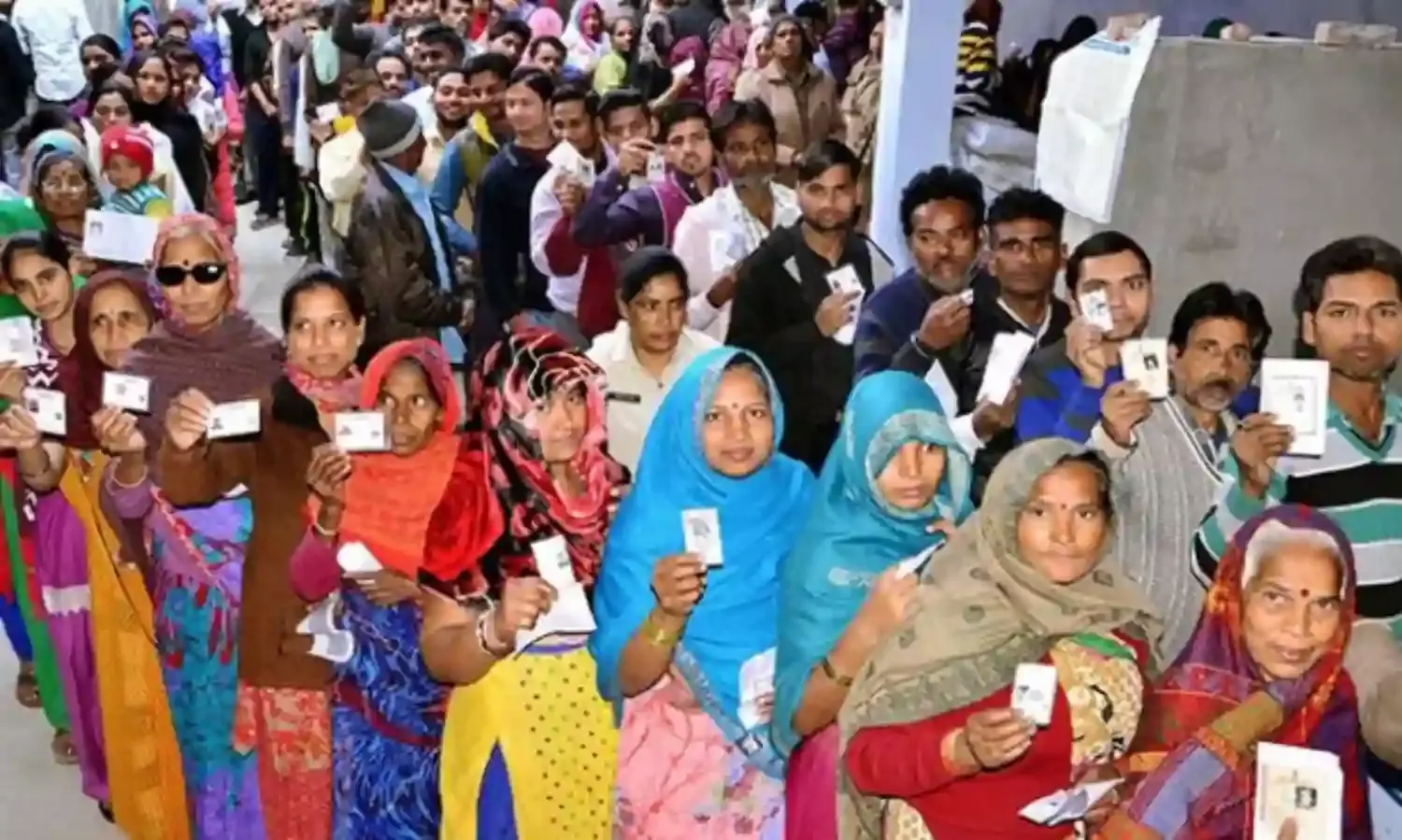A Divine Mandate
Modi is a messiah myth busted ?

The letter ‘M’ must be the most maligned in the English alphabet currently, as the curtain falls on the extended festival of democracy in India. On the campaign trail it gathered some dangerous accretions.
The poor consonant was turned into a villainous character by some star campaigners equating it with Muslim marauders over the centuries, and even innocuous fish and fowl (machli, murg and maas) were thrown with opprobrium at the doorstep of the puzzled letter M.
Armed with an M in her name, the feisty Mamata Banerjee, ever ready to pick up the gauntlet, took on the fight against the Big M by investing the letter M (not Modi) with love, dignity and patriotism by invoking ‘Ma, Mati, Manush’ in her political battle-cry. She has proved yet again that in a ‘Khela Hobe’ tug-of -war she’s the superior sportsperson.
As we look back at the past decade, the big buzz began brewing ever since the year 2014 when ‘Modi magic’ started mesmerising the Indian electorate. Narendra Modi burst upon the national scene from being a regional player and captured the imagination of a large swathe of our population.
With his golden tongue, he made the poor and the rich alike feel that he was their Messiah. A sob-story of rising from a poor background of a chai-wallah family making a living on a train platform, to becoming the numero uno on the political podium was a feel good aspirational story.
It was a good desi match for the famous Lincoln trope: ‘from log cabin to the White House’.
And to squeeze out a few more tears from the janata, used to Bollywood tear-jerker dialogues like “‘Mere paas Ma hai’ (i have mother)” Modi’s mother’s struggle in washing dishes in people’s homes was also cited often. Wearing your poverty on your sleeve is as distasteful as flaunting your riches.
The voters saw hope in entrusting their destiny unto the hands of a man untouched by western mores in speech and attire. A person who was one of them, a PLU (person like us).
They were blind to his luxe watches, shoes and bespoke clothes. The initial narrative of ‘sab ka saath, sab ka vikas’ developed a few cracks and the minorities fell through the cracks.
Jawaharlal Nehru, despite his western education and privileged background, was loved dearly for building the Indian nation from scratch, in consonance with his team of leaders. Unlike Modi, he didn’t grudge the others to be in the limelight.
Yet the persistence of poverty, social inequalities and corruption over the years, steered the people into voting for change. Modi beguiled the people with his rosy promises of ‘acche din’. Chants of ‘Modi, Modi,Modi ‘ also echoed in the Indian diaspora gatherings around the globe during his foreign trips.
A carefully curated brand was built that could teach the advertising companies a trick or two. Stay in the public eye fully groomed for the occasion and attach your name to any success story in the country.
This blind adulation from the bhakts, who couldn’t countenance any criticism of Modi, led to a deepening of hubris in the leader himself. Modi referring to ‘Modi ki guarantee’ at hustings throughout the campaign was a clear case of ‘illeism’ (addressing oneself in the third person). A sure sign of an egotistical person.
An ideal leadership definition by the Chinese philosopher Lao Tzu (571 BC), is that ‘A leader is best when people barely know he exists, when his work is done, his aim fulfilled, they will say: we did it ourselves’. This template would be irksome to our leader who likes to have a battery of cameras following him whether in meditation on rocks, inside caves or at work.
No wonder Modi's slide into a ‘divine’ incarnation of God was the next step. It made him sever his umbilical cord finally and declare that after his mother’s demise he was not a biological person but a divine messenger suffused with radiating energy.
A ‘Messiah complex’ for sure, to think that he alone can redeem a nation of 1.44 billion. Perhaps, it is this flaw in our political protagonist that has led to a historic general election result.
Vox-populi (voice of the people) has proved to be more powerful than Vox-dei.(voice of God). The truth is out that even Gods have clay feet.
Ushi Kak aka Kashpundit, is an author who revels in wordplay and satire couched in humour. At times she deviates into gravitas. Views Expressed are the writer’s own.



